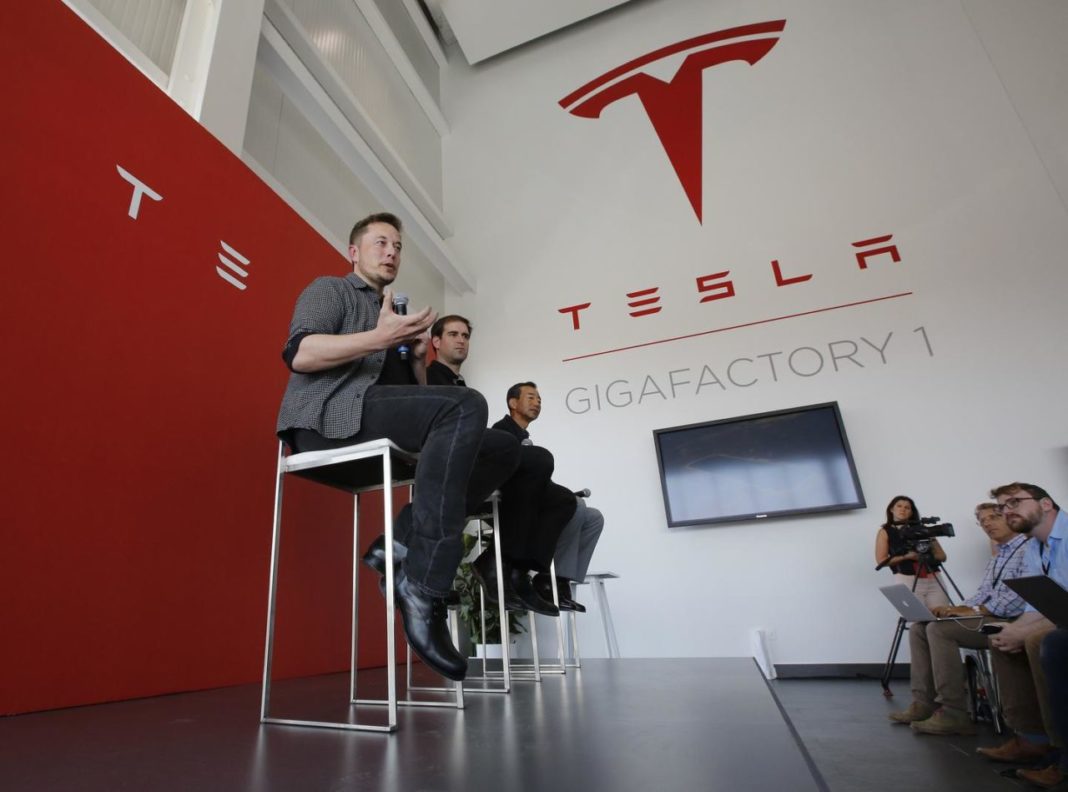By Constance Douris, Contributor
The Tesla Semi, an electric heavy-duty truck, was unveiled last week. Tesla plans to begin production in 2019, and two customers already are interested in buying them, J.B. Hunt Transport Services and Meijer Inc., the Michigan-based grocery store chain. But Tesla is just one of many automakers that are rushing to dominate the electric bus and truck market. The race is on.
Electric buses and trucks are becoming more popular because they save money on fuel and maintenance and produce fewer emissions. Twelve large cities worldwide, including Los Angeles, Mexico City and Seattle, recently pledged to incorporate all-electric buses in public transportation fleets beginning in 2025.
Volkswagen committed $1.7 billion to develop the required technology for electrification of trucks and buses by 2022. The company is going to focus on shrinking the size and increasing the efficiency of batteries to make electric trucks and buses more appealing.
BAE Systems is one company that already provides over 8,000 hybrid and electric buses in North America and Europe, offering six different types. Each model produces zero or near-zero emissions, including the nearly 2,000 Series-E hybrid-electric buses operating today.
The BAE Series-H utilizes hydrogen as its sole fuel source, and more than 6,000 buses are operating at this time. These fuel-cell trucks and buses operate quietly and smoothly, offer longer ranges and shorter fueling times and only emit water. The Series-H uses regenerative braking to capture energy when the driver applies the brakes – the energy is then stored in high voltage batteries for later use.
The BAE Series-EV is fully electric and is undergoing trials in London, Glasgow, Paris and Walnut Creek, California. Electric buses do require significant charging infrastructure investment and need scheduled downtime to charge their large batteries, but some companies such as Siemens can help.
Siemens provides tailored onboard charging systems for electric buses. Currently, Siemens’ onboard charging technology is being used on the roof of buses in Austria. This allows buses and trucks to charge on the go, requiring less scheduled downtime for public transportation and deliveries.
The company also offers fast charging offboard solutions and a plug-in charging solution that can be tailored to local grid conditions and energy costs. An active charging and energy management system can be integrated as well.
In the U.S., a recent public-private partnership was announced to switch to electric delivery vehicles. United Parcel Service (UPS) and the New York State Energy Research and Development Authority are working together to adopt more of these vehicles. This development supports New York Governor Andrew Cuomo’s goal to reduce emissions by 40 percent in 20 years.
Unique Electric Solutions is developing the technology called uniqueEV to allow UPS to operate more electric trucks. The authority is providing $500,000 to help pay for research and design. A production version is expected by spring next year with a single-charge range between 40 to 125 miles.
“Public-private partnerships help push innovation forward and transform industries,” Carlton Rose, UPS President of global fleet maintenance and engineering, said. “This program will help UPS develop and deploy electric delivery trucks faster and more affordably.”
Currently, UPS operates more than 770 electric or hybrid vehicles and more than 8,500 alternative fuel and advanced technology trucks worldwide. By 2020, UPS aims for one in four of its vehicles to be electric, hybrid or alternative-fuel. By 2022, 1,500 trucks, which is 66 percent of the UPS fleet, will operate on electricity. These numbers include Daimler’s eCanter short-range electric trucks.
The eCanter is almost completely silent and allows for substantial cost savings on fuel. Its batteries have 62 miles of range and may save companies up to $1,200 in operating costs for every 6,200 miles. Additional customers of this truck include 7-Eleven and Yamato Transport.
Other companies that are incorporating electric vehicles include Frito-Lay, FedEx and Coca-Cola. Frito-Lay operates more than 250 electric vehicles worldwide. FedEx introduced Nissan e-NV200 vehicles for pickup and deliveries in the United Kingdom earlier this year. Coca-Cola introduced hybrid electric delivery trucks in New Orleans as early as 2009.
Many people are aware of the efficient and environmental gains that result from electric transportation. However, fewer individuals realize that the batteries in electric buses and trucks could also serve as mobile energy storage units that can export power. This could help meet supply and demand for electricity on the grid when vehicles are not in use and help provide local power in emergency situations.
A year-long study was conducted by Nissan, Nuvve and the Italian utility EnelSpA which confirmed that vehicle-to-grid services could cover some costs involved with charging an electric car. Nissan and Ovo, one of the United Kingdom’s largest energy suppliers, will offer the vehicle-to-grid service to buyers of the Nissan Leaf next year.
As you can see, the electrification of transportation is increasing in popularity. The options for electric buses and the need for charging infrastructure is expanding. It is important for more public-private partnerships, such as the one between UPS and the New York State authority, to be created so that the benefits of electric transportation can be realized faster. Such partnerships will deliver more vehicle models to choose from and at a lower cost.
As Vice President of the Lexington Institute, Constance Douris manages the energy portfolio. She has published research and given speeches about smart grid data, cybersecurity of the electric grid and the impact of electric vehicles on the grid. You can follow her on Twitter @CVDouris and the Lexington Institute @LexNextDC.









